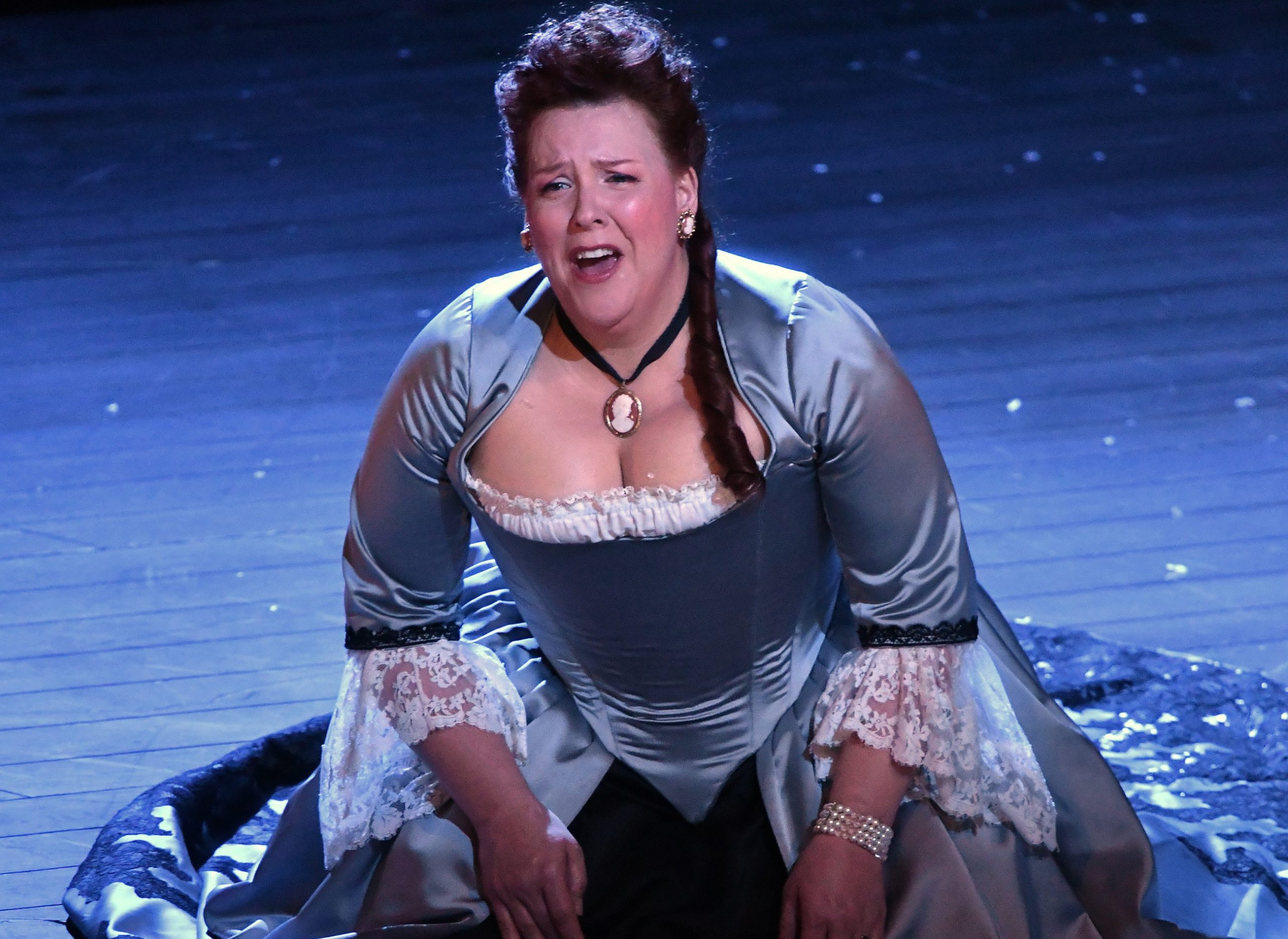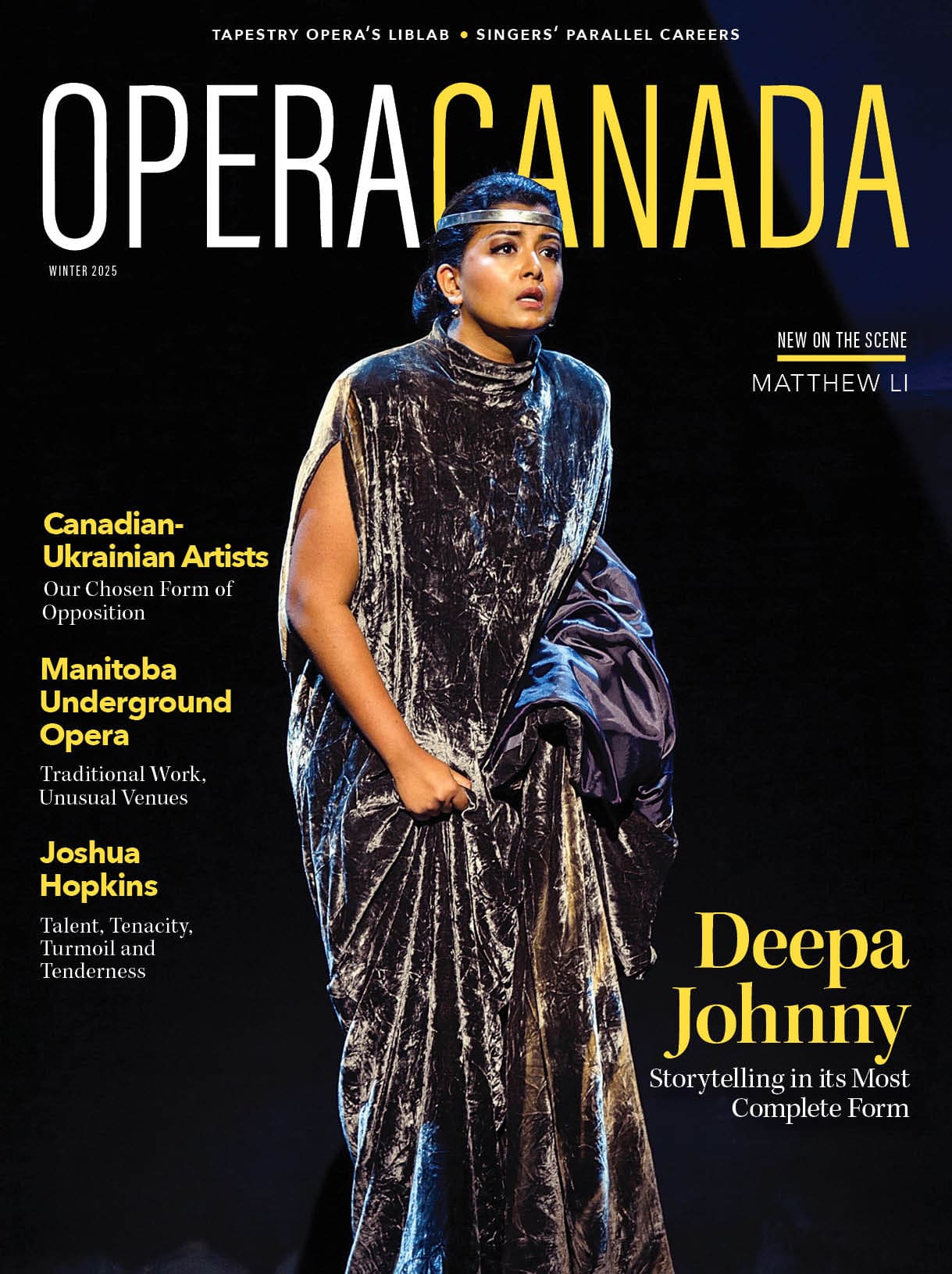With its sumptuous melodies coupled to a tale of unrequited love culminating in a dramatic suicide on Christmas Eve, Massenet’s Werther has long been a precious jewel in the operatic repertoire.
How à propos that OperaVision.eu began a six-month livestream of Massenet’s chef d’oeuvre on—yes, you guessed it—Christmas Eve, 2021. Videotaped during the May 18, 2021 dress rehearsal at Montpellier’s Opéra Comédie with the Opéra Orchestre national Montpellier Occitanie/Pyrénées-Méditerranée, this Werther starred Guatemalan tenor Mario Chang in the title role opposite Canadian contralto Marie-Nicole Lemieux as Charlotte, both singers making role debuts.
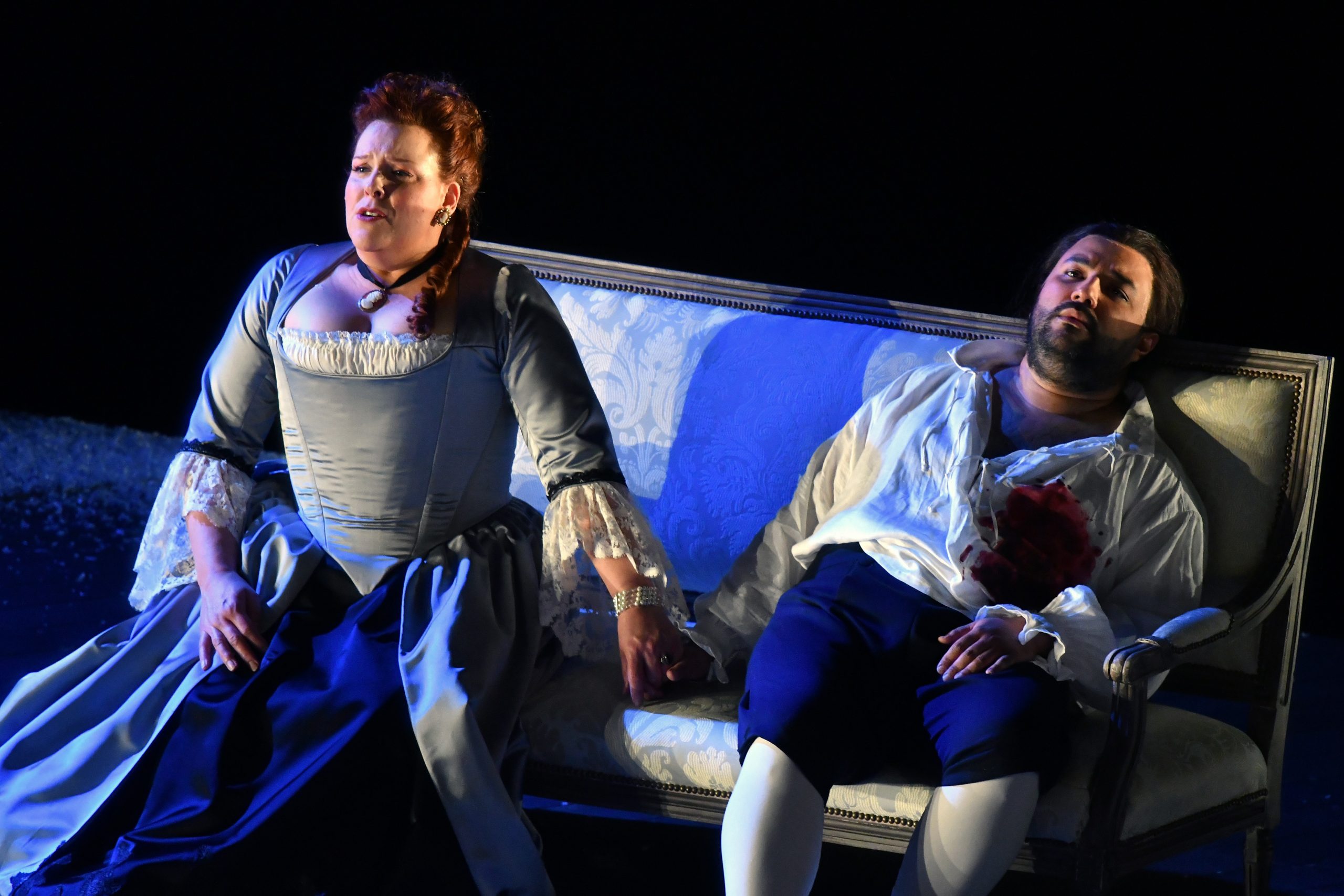
L-R: Marie-Nicole Lemieux (Charlotte) and Mario Chang (Werther) in Opéra Orchestre national Montpellier Occitanie/Pyrénées-Méditerranée’s Werther. Photo: Marc Ginot
Massenet once stated that he’d put all his soul and artistic conscience into Werther. Upon viewing the livestream in tranches over the Christmas holidays (Dec. 24 to Dec. 30), the same could be said of Lemieux and her performance. In an interview posted on OperaVision.eu, Lemieux mentioned that she’d been singing the “Air des lettres” and the “Air des larmes” (“Va! laisse couler mes larmes”) since her conservatoire days. And it showed. With pristine elocution and detailed attention to consonants, vowel formation and their colouring, Lemieux’s “Air des larmes” was one of her many highlights. Every bar but one in this two-page air in the Heugel vocal score contains a direction of some sort for the singer. Lemieux followed these practically to a T, forgoing only the breath mark after “âme.” She also included some purposely overwrought word painting on the line, “Martèlent le coeur triste et las!” The same attention to detail was heard in her rendition of the “Air des lettres” in which she successfully captured its range of emotions.
Chang, winner of the 2014 Operalia competition, was the cast’s lone non-native French speaker. And it showed. Even on such seemingly insignificant words in Act III as “clavecin,” or moments later, the first “du” in Werther’s showstopper, “Pourquoi me réveiller.” Those tiny foibles aside, Chang displayed a fine voice, one with considerable heft when needed. He had no difficulty hitting the “money notes,” those high A sharps, in the aforementioned “Pourquoi me réveiller.” As Albert, baritone Jérôme Boutillier exhibited a round and resonant voice as well as wonderfully rolled “r’s.”
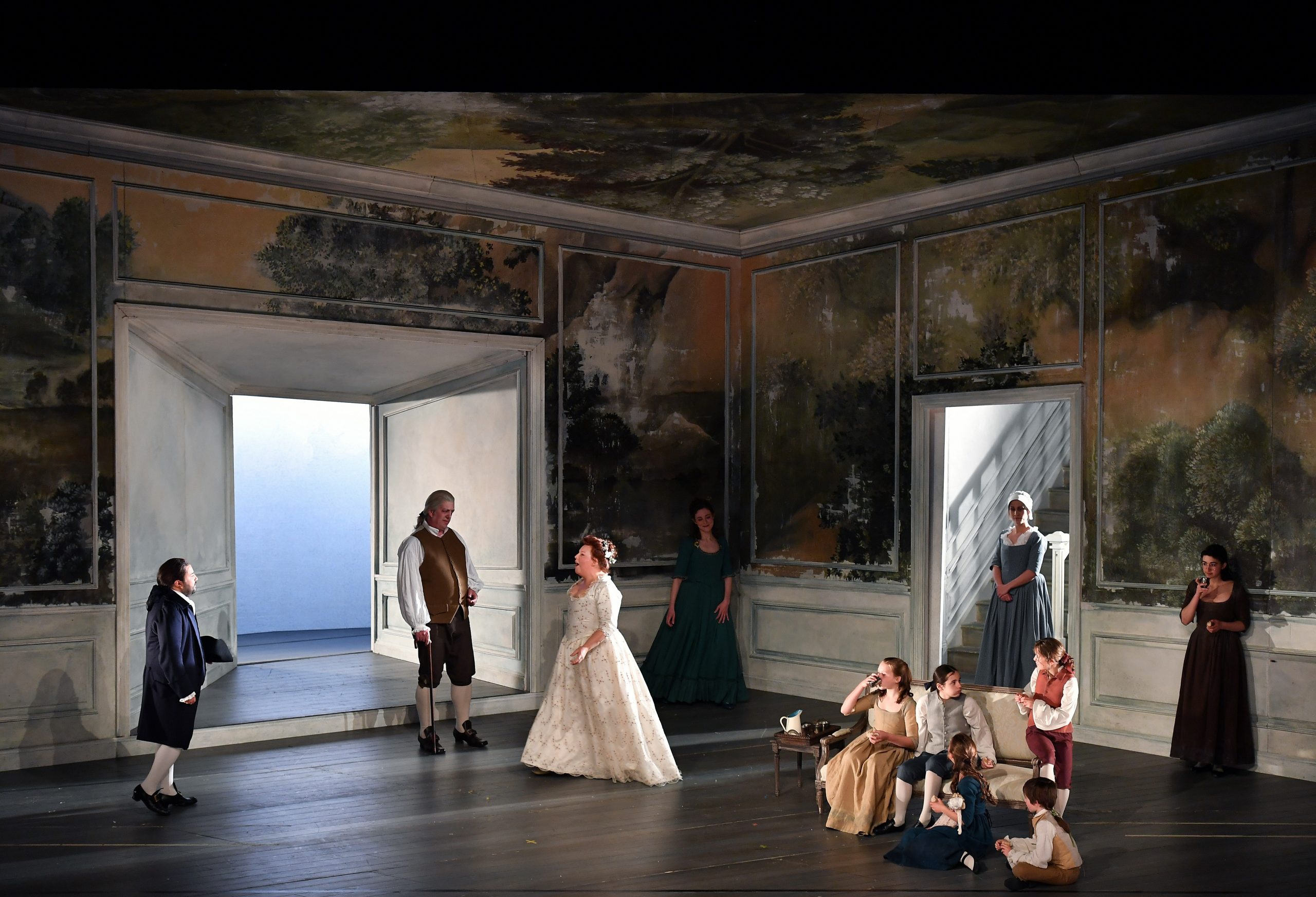
A scene from Opéra Orchestre national Montpellier Occitanie/Pyrénées-Méditerranée’s Werther. Photo: Marc Ginot
Bass-baritone Julien Véronèse, reviewed favourably last Oct. 29th by OC as Dulcamara in Opéra de Québec’s L’elisir d’amore, was a highly likeable and vibrant bailli. Véronèse, too, followed Massenet’s instructions to a T—never singing the bailli’s threefold “Vivat Bacchus! semper vivat!” the same way twice was but one example.
Pauline Texier was as cheerful as the sun in the soubrette role of Sophie, save for the final moments of Act II where, suitably upset and breathing heavily, she informed Charlotte of Werther’s departure.
Tenor Yoann Le Lan and bass Matthias Jacquot acquitted themselves well as Schmidt and Johann respectively. Ditto for soprano Emma de La Selle as Kätchen and tenor Léo Thiéry as Brühlmann. Lisa Martin played the Servante.
The six children from Vincent Recolin’s Choeur Opéra Junior were a polished lot, perhaps too polished in Act I for kids learning a Christmas carol in the summer. They were joined offstage in Act IV by Noëlle Gény’s Choeur Dames Opéra national Montpellier Occitanie.
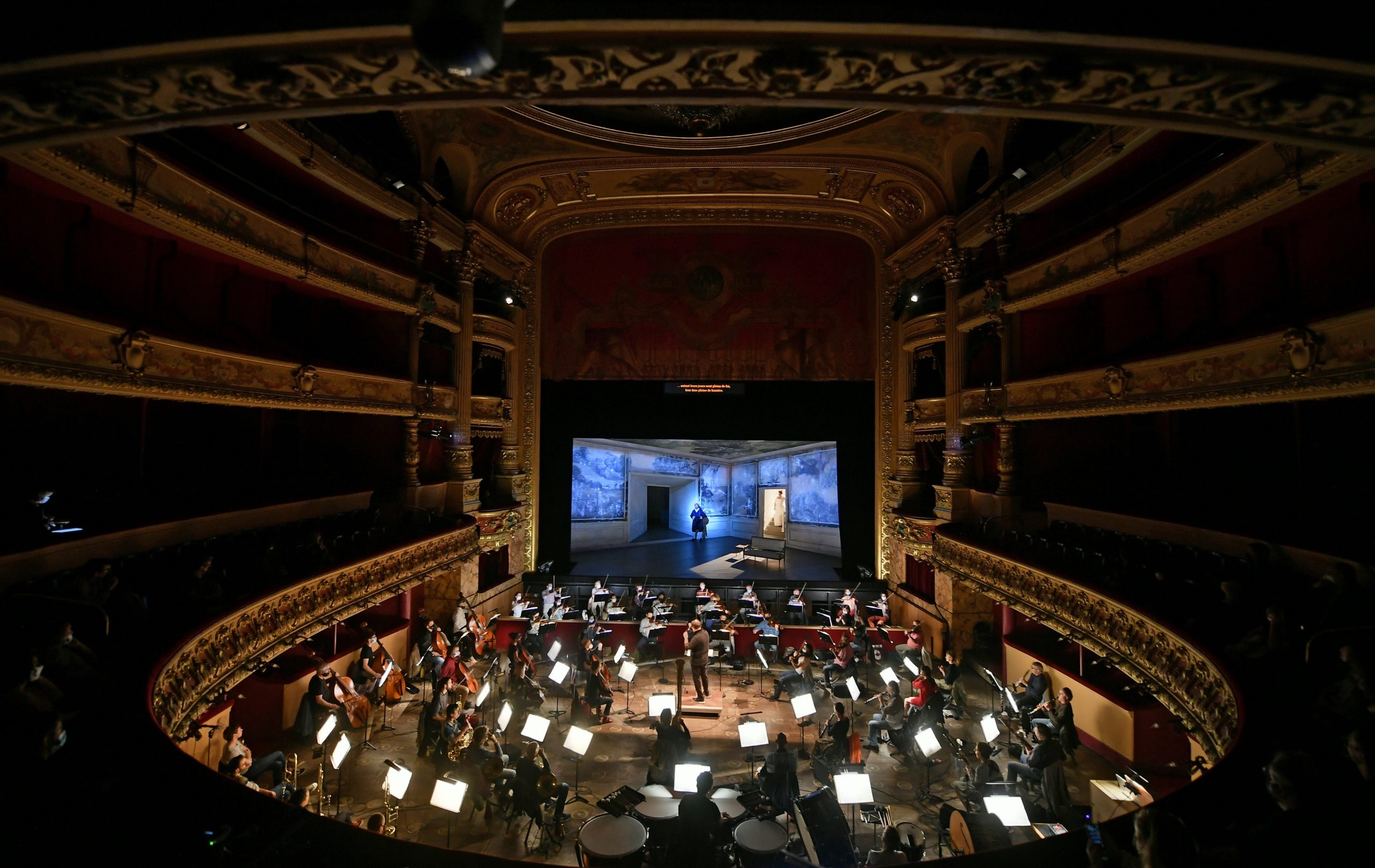
Jean-Marie Zeitouni conducts Opéra Orchestre national Montpellier Occitanie/Pyrénées-Méditerranée’s Werther. Photo: Marc Ginot
Canadian conductor Jean-Marie Zeitouni accurately gauged the emotional temperature of each act, scene, and phrase as he led the Opéra Orchestre national Montpellier Occitanie/Pyrénées-Méditerranée. A photo on the OperaVision site [above] showed that the Opéra Comédie’s orchestra seats had all been removed so that most of the orchestra could be seated physically distanced in a circular manner with Zeitouni on a podium in the middle. Some string players were seated in the elevated pit.
Bruno Ravella’s 2018 staging for the Opéra National de Lorraine in Nancy, which incidentally was also conducted by Zeitouni, was reprised and adapted for Montpellier by revival director José Darío Innella. While there were no Wetzlarians celebrating the pastor’s golden wedding anniversary at the start of Act II, this was undoubtedly an adaptation due to COVID. Charlotte didn’t kiss the children during Werther’s “Ah, spectacle idéal d’amour et d’innocence.” That scene of domestic bliss played out as a frozen tableau around a couch. Werther and Charlotte didn’t enter arm in arm prior to the latter’s “Il faut nous séparer” in Act I. And during the death scene, Werther lay on the stage while Charlotte, several metres away, sang directly toward Zeitouni and what little audience was permitted to attend. There was no holding of hands during the cast bows.
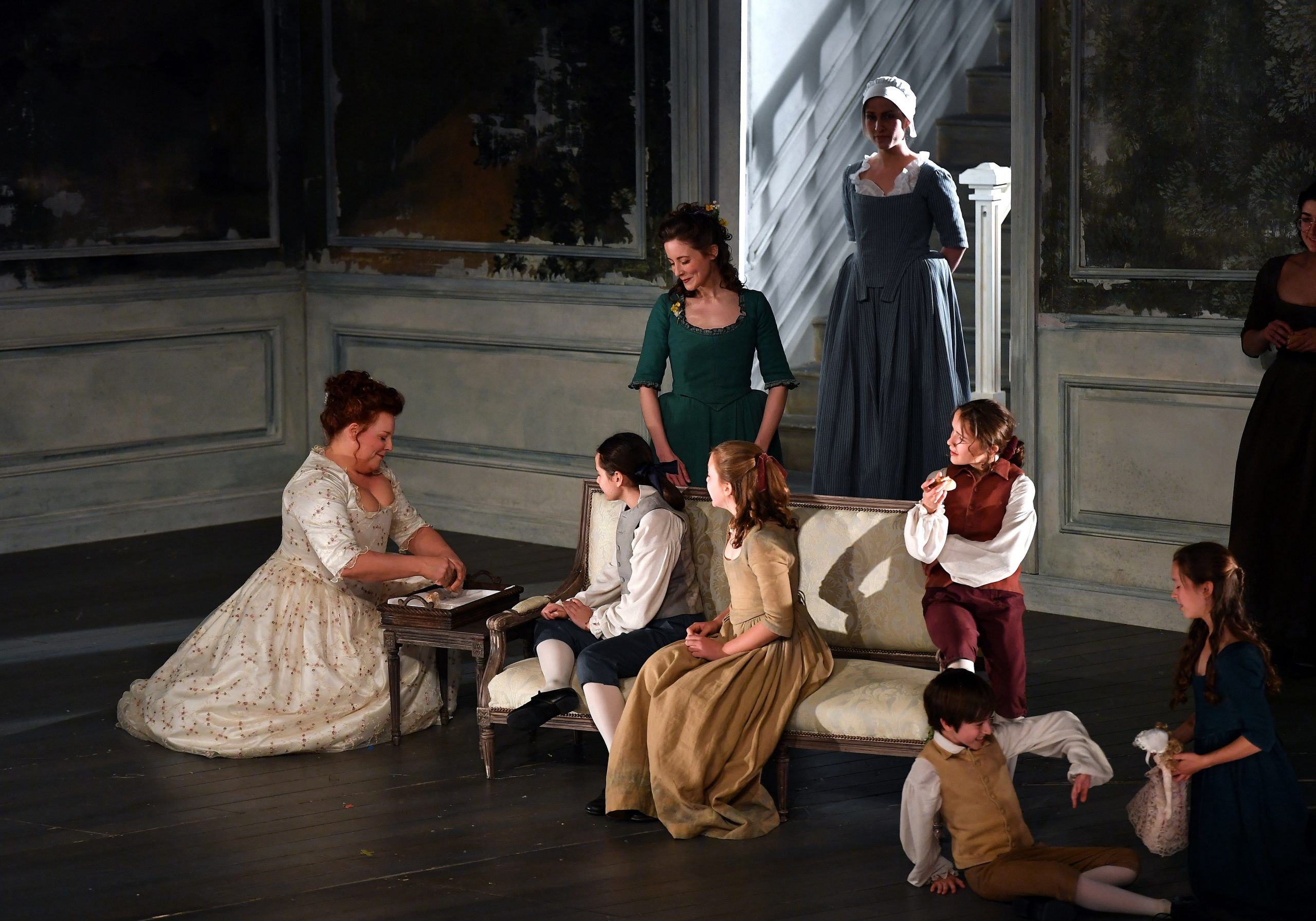
A scene from Opéra Orchestre national Montpellier Occitanie/Pyrénées-Méditerranée’s Werther. Photo: Marc Ginot
Leslie Travers’s stately-looking set with its few movables placed Act I in the bailli’s home rather than his garden. In Act II, the set’s ceiling was lifted slightly to show Schmidt and Johann ‘exalting’ one of God’s good gifts and later sprinkling the wine as if it were holy water.
Travers’s all-season period costumes blurred the lines between summer and winter. Thankfully, artificial snowflakes falling from the flies suggested the latter, though there wasn’t a single Christmas decoration in sight. Travers outfitted Charlotte in some lovely dresses, but puzzlingly ditched Werther’s iconic trademark yellow waistcoat and boots.
Linus Fellbom’s effective lighting effectively tied the bow on this Christmas present for opera cybernauts.
Opéra Orchestre national Montpellier Occitanie/Pyrénées-Méditerranée’s Werther is available to view, for free, until June 24, 2022.


